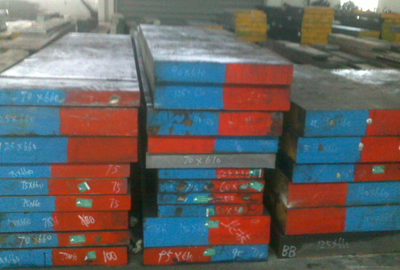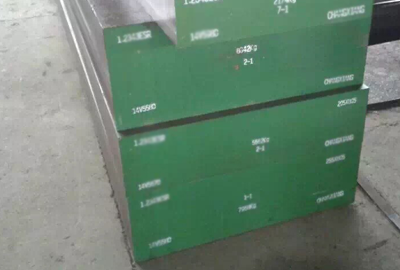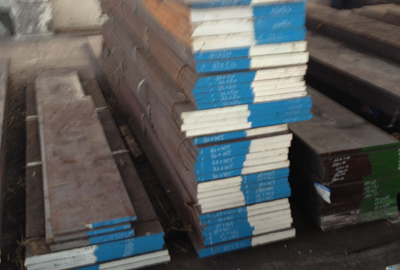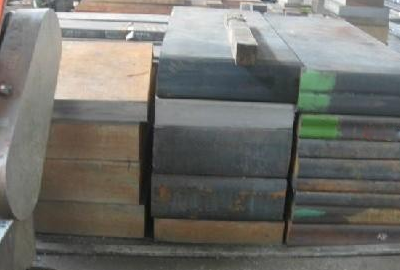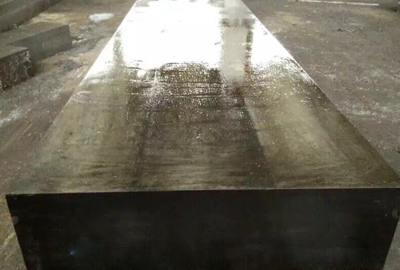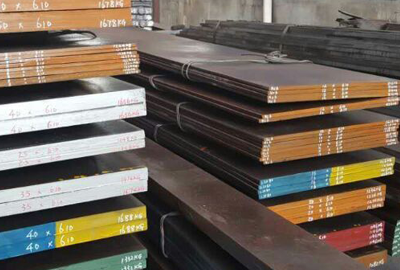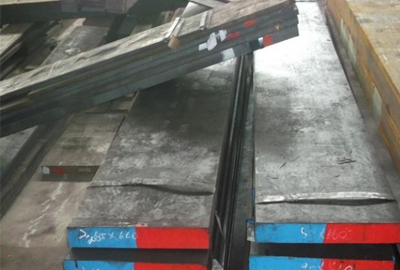Mat.No. 1.4057, DIN X17CrNi16-2, AISI 431
Short Description:
Designation by Standards Mat. No. DIN EN AISI 1.4057 X17CrNi16-2 X17CrNi16-2 431 Chemical Composition (in weight %) C Si Mn Cr Mo Ni V W Others 0.17 max. 1.0 max. 1.50 16.00 - 2.00 - - - Description 431 is a martensitic stainless combining excellent impact strength at high hardness levels with the best corrosion resistance of any martensitic stainless steels. Steel with high polishability. For application up to working temperature 500oC. Applications 431 has been successfully...
Product Detail
FAQ
Product Tags
Designation by Standards
| Mat. No. | DIN | EN | AISI |
| 1.4057 | X17CrNi16-2 | X17CrNi16-2 | 431 |
Chemical Composition (in weight %)
| C | Si | Mn | Cr | Mo | Ni | V | W | Others |
| 0.17 | max. 1.0 | max. 1.50 | 16.00 | - | 2.00 | - | - | - |
Description 431 is a martensitic stainless combining excellent impact strength at high hardness levels with the best corrosion resistance of any martensitic stainless steels. Steel with high polishability. For application up to working temperature 500oC. Applications 431 has been successfully used in a variety of aircraft and general industrial applications. These include fasteners, shafts, bolts, valve components and chemical equipment, components for dairies, machine building and paper industry. Physical properties (avarage values) at ambient temperature Modulus of elasticity [103 x N/mm2]: 216 Density [g/cm3]: 7.70 Thermal conductivity [W/m.K]: 25.0 Electric resistivity [Ohm mm2/m]: 0.70 Specific heat capacity[J/g.K]: 0.46 Modulus of Elasticity [103 N/mm2]
| 20oC | 200oC | 400oC |
| 216 | 205 | 190 |
Coefficient of Linear Thermal Expansion 10-6 oC-1
| 20-100oC | 20-200oC | 20-300oC | 20-400oC | 20-500oC | 20-600oC | 20-700oC |
| 11.2 | 11.5 | 11.7 | 11.9 | 12.0 | 12.1 | 12.0 |
Continuous Cooling Transformation (CCT) Diagram  Click the image to enlarge the diagram. Soft Annealing Heat to 660-750oC, cool slowly in furnace. This will produce a maximum Brinell hardness of 295. Hardening Harden from a temperature of 980-1030oC followed by oil or air quenching. Hardness after quenching is about 47 HRC. Tempering Tempering temperature: For Q+T 800: 750-800oC. For Q+T 900: 600-650oC. 0.2 % Proof Stress (N/mm2) at Elevated Temperatures
Click the image to enlarge the diagram. Soft Annealing Heat to 660-750oC, cool slowly in furnace. This will produce a maximum Brinell hardness of 295. Hardening Harden from a temperature of 980-1030oC followed by oil or air quenching. Hardness after quenching is about 47 HRC. Tempering Tempering temperature: For Q+T 800: 750-800oC. For Q+T 900: 600-650oC. 0.2 % Proof Stress (N/mm2) at Elevated Temperatures
| Condition | 100oC | 150oC | 200oC | 250oC | 300oC | 350oC | 400oC |
| Q+T 800 | 515 | 495 | 475 | 460 | 440 | 405 | 355 |
| Q+T 900 | 565 | 525 | 505 | 490 | 470 | 430 | 375 |
Diagram Tempering Temperature – Mechanical Properties  Click the image to enlarge the diagram. Forging Hot forming temperature: 1100-800oC, slow cooling. Machinability In the fully annealed condition, 431 will gall and build up on the tools. Good surface finishes are not easily obtained. Corrosion Resistance 431 is superior to all other martensitic grades in terms of corrosion resistance. Will resist dilute acids and alkalis, neutral and basic salts, food acids, fresh water and atmosphere. Welding Most electric welding procedures have proven successful with 431 stainless. Filler metal should be AWS E/ER410.To avoid cracking, pre-heat the workpiece to 204-316oC. After air cooling, treat at 649oC to reattain maximum properties. Embittlemnt: It must be in mind that the temperature range between 425 and 525oC must be avoided owing to embritllement at 475oC. Cold working This alloy is easily drawn, spun, headed, sheared and bent compared with other stainless steels. Forms manufactured: Please see the Dimensional Sales Program. Disclaimer The information and data presented herein are typical or average values and are not a guarantee of maximum or minimum values. Applications specifically suggested for material described herein are made solely for the purpose of illustration to enable the reader to make his own evaluation and are not intended as warranties, either express or implied, of fitness for these or other puposes. There is no representation that the recipient of this literature will receive updated editions as the become available.
Click the image to enlarge the diagram. Forging Hot forming temperature: 1100-800oC, slow cooling. Machinability In the fully annealed condition, 431 will gall and build up on the tools. Good surface finishes are not easily obtained. Corrosion Resistance 431 is superior to all other martensitic grades in terms of corrosion resistance. Will resist dilute acids and alkalis, neutral and basic salts, food acids, fresh water and atmosphere. Welding Most electric welding procedures have proven successful with 431 stainless. Filler metal should be AWS E/ER410.To avoid cracking, pre-heat the workpiece to 204-316oC. After air cooling, treat at 649oC to reattain maximum properties. Embittlemnt: It must be in mind that the temperature range between 425 and 525oC must be avoided owing to embritllement at 475oC. Cold working This alloy is easily drawn, spun, headed, sheared and bent compared with other stainless steels. Forms manufactured: Please see the Dimensional Sales Program. Disclaimer The information and data presented herein are typical or average values and are not a guarantee of maximum or minimum values. Applications specifically suggested for material described herein are made solely for the purpose of illustration to enable the reader to make his own evaluation and are not intended as warranties, either express or implied, of fitness for these or other puposes. There is no representation that the recipient of this literature will receive updated editions as the become available.
FAQ Content
![[0{7)7UAZ(]4W{5TSMC65Q7](https://www.htsteelmill.com/uploads/077UAZ4W5TSMC65Q7.png)
